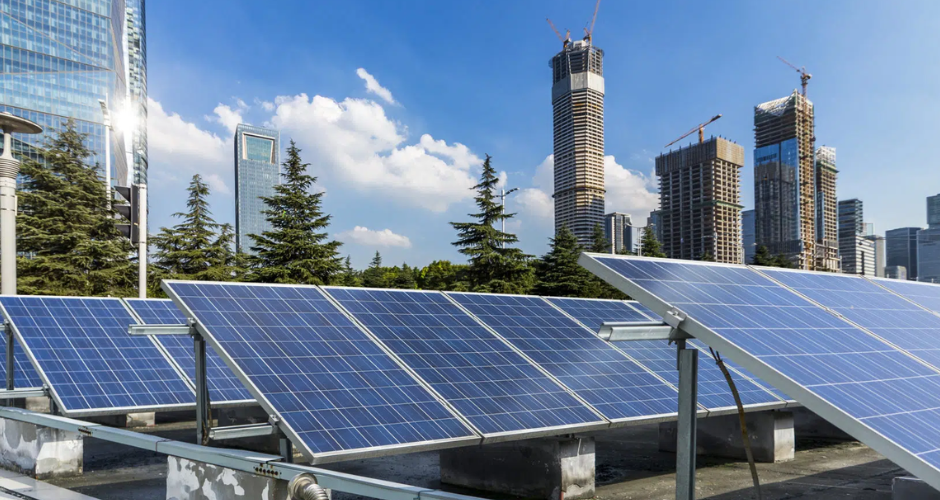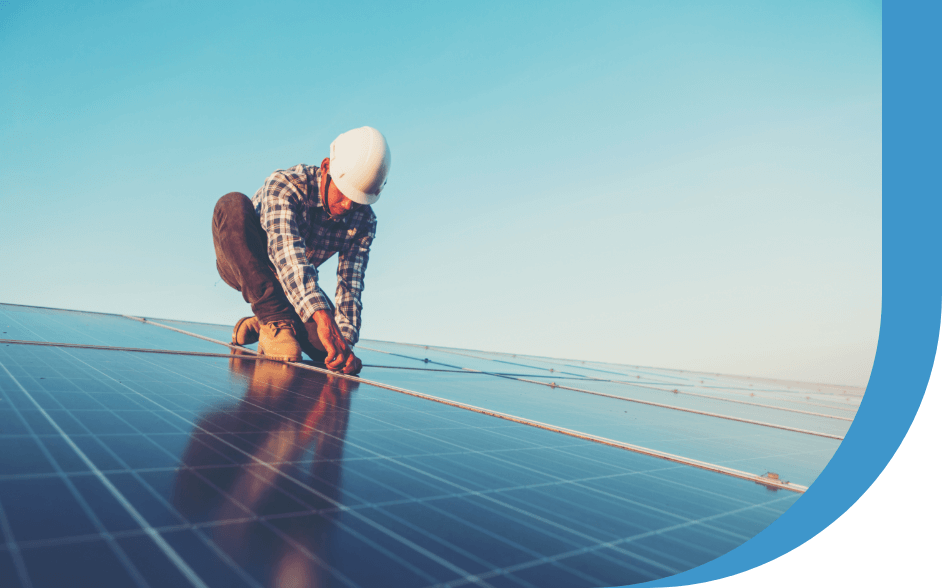In the contemporary business landscape, sustainability is more than a buzzword—it's a driving force behind corporate strategies and consumer choices. So, how can commercial businesses benefit from solar system investments?
Among the myriad of sustainability initiatives, investing in solar energy stands out for its substantial benefits. For commercial businesses, adopting solar power is not just an environmentally conscious decision but also a financially savvy one.
This article explores the benefits of investing in solar systems for commercial businesses and offers guidance on how to choose solar energy wisely.
A commercial solar energy system or commercial photovoltaic (PV) system, is a renewable energy infrastructure designed to generate electricity from sunlight to meet the energy needs of commercial enterprises, businesses, and organisations.
Unlike residential solar panel systems installed on homes, commercial solar panel systems are tailored to the specific energy requirements and operational characteristics of commercial facilities, such as office buildings, warehouses, factories, shopping centres, schools, and hospitals.

Commercial solar systems offer a wide range of benefits to businesses. Here are some of the key benefits:
Cost savings are compelling reasons for businesses to invest in solar energy systems. Unlike traditional energy sources like grid electricity, which are susceptible to price fluctuations driven by market dynamics and geopolitical factors, solar energy provides a stable and predictable power source.
This stability shields businesses from the volatility of energy costs over the long term, offering financial predictability and reducing operational expenses.
Traditional energy sources, such as fossil fuels and grid electricity, often incur variable costs based on supply and demand, fuel prices, regulatory changes, and geopolitical tensions. These fluctuations can pose challenges for businesses, particularly those with energy-intensive operations or tight budget constraints.
In contrast, solar energy systems offer a fixed and predictable cost structure, giving businesses greater control over their energy expenses.
Once installed, solar panels generate electricity from sunlight without the need for fuel or ongoing fuel costs. This inherent cost stability allows businesses to accurately forecast their energy expenditures and allocate resources more effectively, contributing to improved budgeting and financial planning.
Related Articles:
Return on Investment (ROI) is critical for commercial enterprises evaluating solar system investments. Although the upfront costs associated with installing solar panels and related equipment may appear substantial, the long-term financial benefits frequently outweigh the initial investment.
With technological advancements and supportive government incentives, the payback period for solar installations has shortened, rendering solar energy an enticing proposition for businesses aiming to enhance their bottom line.
The ROI of solar system investments stems from several key factors:

Solar energy offers businesses a compelling benefit of energy independence. It offers them greater control over their energy supply and reduces their reliance on traditional utility providers and fossil fuels. By generating electricity on-site from renewable sources like solar energy, commercial enterprises can enhance their energy independence and resilience to external disruptions, ensuring a stable and reliable power supply.
Here are key advantages of energy independence through solar energy:
Tip - Get unparalleled energy savings and sustainability with Potentia Engineering's commercial solar installations in the UK. Our team of fully accredited and qualified solar system installers, holding a professional engineering licence from the UK’s Engineering Council, guarantees you're working with one of the best in the industry.
Making informed solar investments is crucial for businesses seeking to maximise the benefits of solar energy while minimising risks and uncertainties. Here are some tips to consider when evaluating and planning for solar investments:
Conduct a Comprehensive Energy Audit: Before investing in solar energy, businesses should conduct a thorough energy audit to assess their current energy consumption patterns and identify opportunities for efficiency improvements.
Understanding energy needs and usage patterns is crucial for determining the size and configuration of the solar system required to effectively meet the organisation's requirements.
Evaluate Financial Incentives and Financing Options: Businesses should research available tax incentives, rebates, and financing options to maximise the financial benefits of solar investments. Government incentives vary by location and may include investment tax credits, accelerated depreciation, and grants for renewable energy projects.
Additionally, businesses can explore financing options such as solar leases, power purchase agreements (PPAs), and commercial loans to mitigate upfront costs and spread payments over time.
Partner with Experienced Solar Providers: Selecting the right solar provider is essential for the success of a commercial solar project. Businesses should seek reputable, experienced solar companies with a proven track record of delivering quality installations and reliable customer service.
Collaborating with knowledgeable solar providers ensures that businesses receive expert guidance throughout the project lifecycle, from initial feasibility assessments to system design, installation, and ongoing maintenance.
Consider Energy Storage Solutions: Integrating energy storage solutions, such as batteries, with solar installations can further enhance the benefits of solar energy by enabling businesses to store excess energy generated during peak sunlight hours for use during periods of low or no sunlight.
Energy storage systems provide backup power during grid outages and can help businesses optimise energy usage, reduce demand charges, and achieve greater energy independence.
Monitor Performance and Optimise Efficiency: Once a solar system is installed, businesses should implement monitoring tools to track energy production, identify potential issues, and optimise system performance.
Monitoring software allows companies to analyse real-time energy generation, consumption, and savings data, enabling proactive maintenance and continuous system efficiency improvement.
Solar system investments offer myriad benefits to commercial businesses, ranging from cost savings and financial incentives to environmental sustainability and enhanced brand reputation. By harnessing the sun's power, companies can reduce their carbon footprint, lower operating expenses, and secure a competitive advantage in an increasingly eco-conscious market.
Through meticulous preparation, well-informed choices, and tactical alliances, businesses may venture into a more economically viable and environmentally conscious future driven by solar electricity.

We pride ourselves on giving an exceptional level of customer service. Contact us to day for a no obligation quote.



If you would like to receive a personalised quote for any or our services, or just have general queries about Solar energy systems please complete the form below. We aim to get back to you within 24 hours.